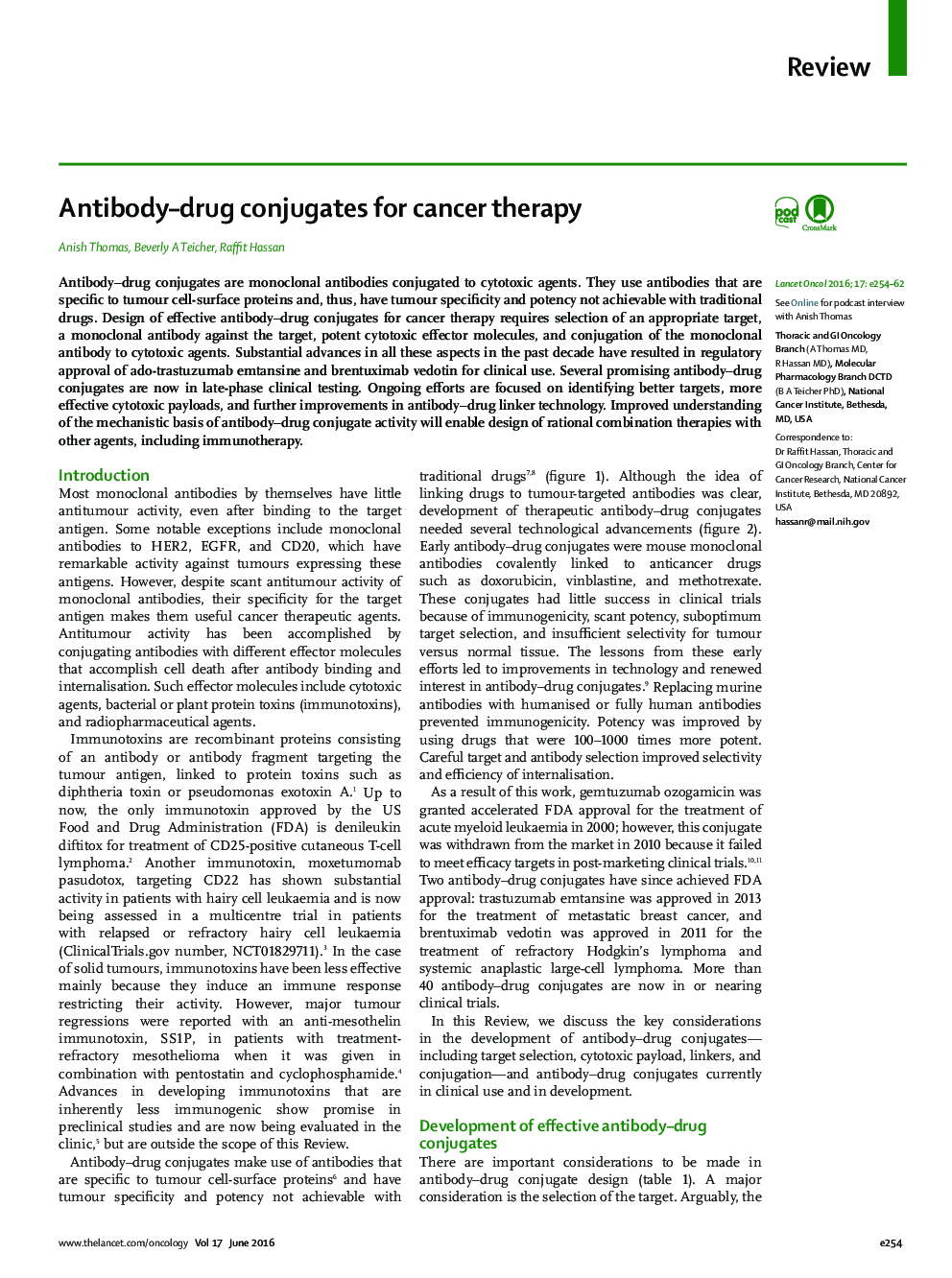| Article ID | Journal | Published Year | Pages | File Type |
|---|---|---|---|---|
| 3993036 | The Lancet Oncology | 2016 | 9 Pages |
SummaryAntibody–drug conjugates are monoclonal antibodies conjugated to cytotoxic agents. They use antibodies that are specific to tumour cell-surface proteins and, thus, have tumour specificity and potency not achievable with traditional drugs. Design of effective antibody–drug conjugates for cancer therapy requires selection of an appropriate target, a monoclonal antibody against the target, potent cytotoxic effector molecules, and conjugation of the monoclonal antibody to cytotoxic agents. Substantial advances in all these aspects in the past decade have resulted in regulatory approval of ado-trastuzumab emtansine and brentuximab vedotin for clinical use. Several promising antibody–drug conjugates are now in late-phase clinical testing. Ongoing efforts are focused on identifying better targets, more effective cytotoxic payloads, and further improvements in antibody–drug linker technology. Improved understanding of the mechanistic basis of antibody–drug conjugate activity will enable design of rational combination therapies with other agents, including immunotherapy.
